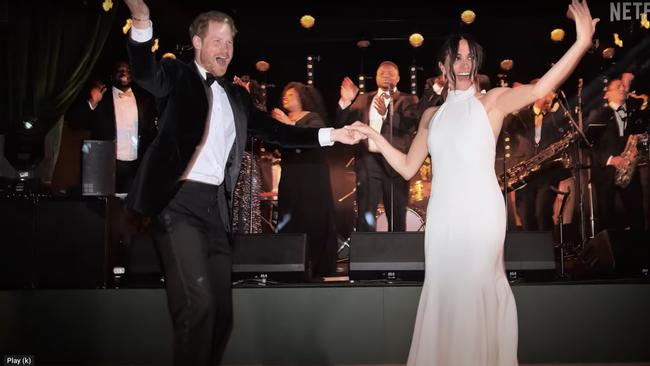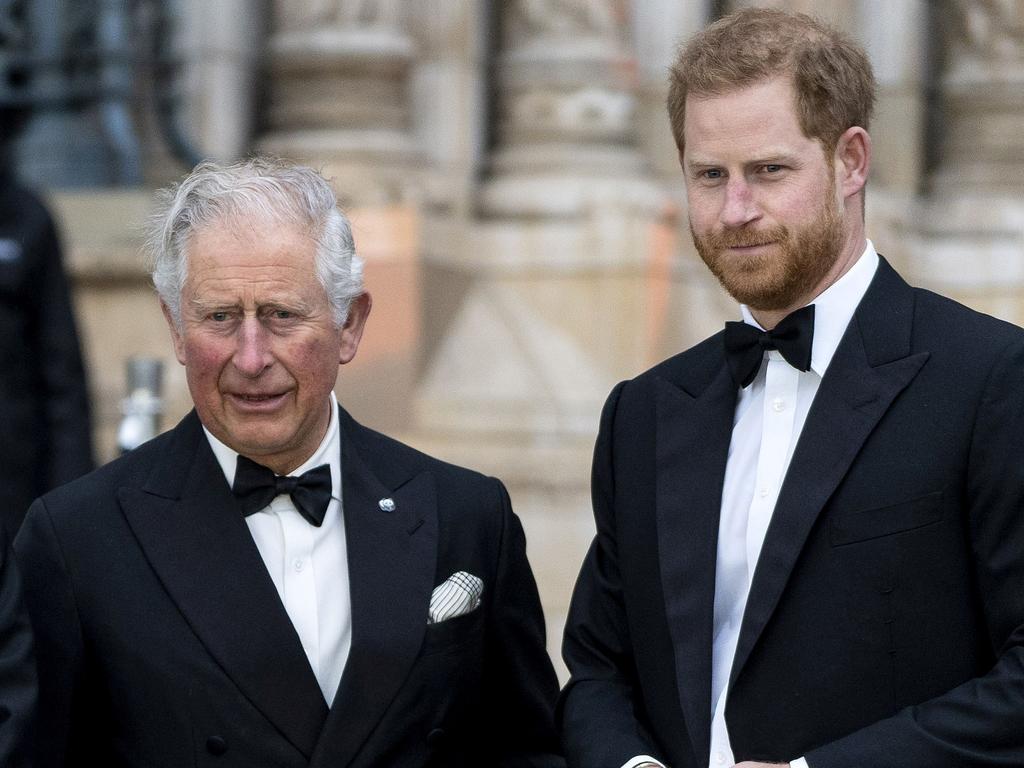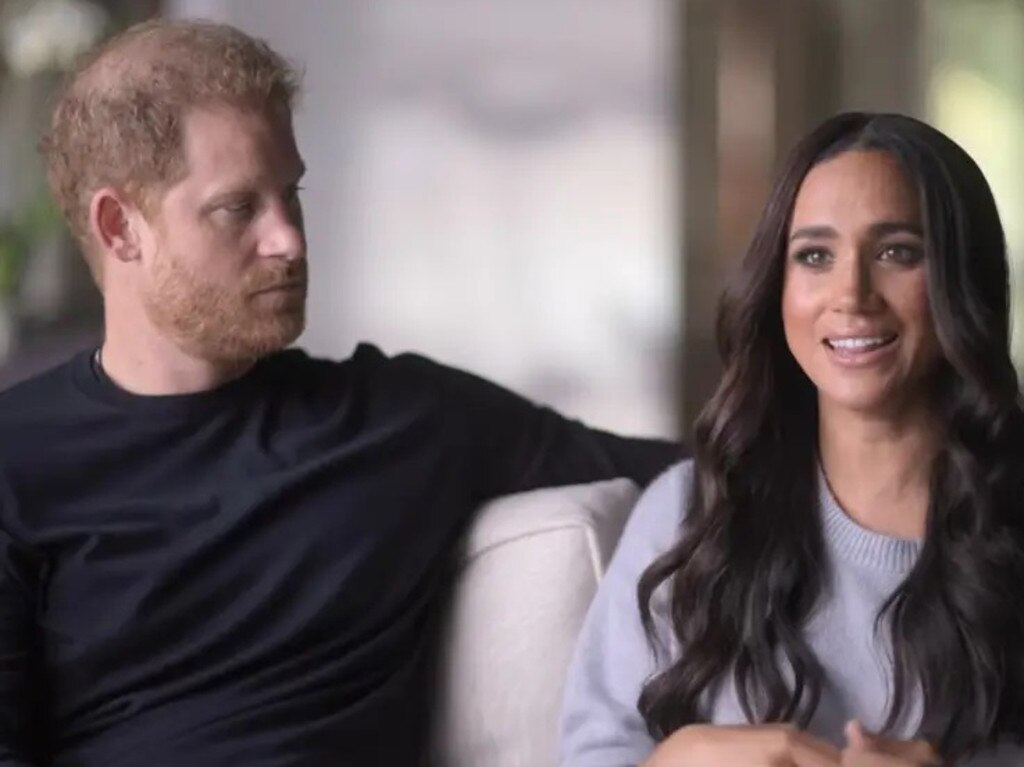In defence of the Sussexes: the great royal divide
Harry and Meghan’s is a human story about a family who just wanted a new way of living. Why all the hate?

Try watching the pair’s Netflix documentary with a serious person in the room. It is hard to hear for the yelling at the telly.
For the commentators, Harry and Meghan are the embodiment of many modern preoccupations of an emotionally incontinent generation whose ramblings serious people hate. But much to their annoyance, that stuff cuts through. There is a huge amount of interest in this story from the ordinary Australian hoi polloi. Hence the Sussexes are the number one news story. That couple are real people and as such they deserve a better hearing.
Both the tabloid and the conservative press in Britain had a field day with Harry and Meghan. First the Megxit, then Oprah, and now the documentary. The real problem seems to be that for a couple who originally claimed to want privacy they are now actually invading their own privacy.
But they decided on a career in media, and unfortunately, as anyone remotely connected with that world knows, one can’t be completely private in order to make a living from the media.
However, their openness about their dissatisfaction with royal life has prompted genuine queries in Britain about their motives. Is it money, or to attack the royal family, especially the King and the Prince of Wales, or to expose the level of “unconscious bias”, even racism within the royal sphere? The British press will never forgive the Sussexes for leaving the royal family and Britain itself. The British public see their exit as betrayal. But then, this is the same British public that displayed mass hysteria over the death of Diana, and now warms to the woman widely caricatured as a human rottweiler.
None of this is important, because in the Sussexes’ eyes, the British public are irrelevant. The marketing of their story is not aimed at the British, it is aimed squarely at the lucrative American market; it is being told like a modern fable and one has to admit that, judging by its success as a media debut, this documentary series is a pretty fair effort.
Their motives are not so difficult to understand. Harry was a deeply traumatised child and young man. He says he married Meghan for her to come into his world, but since neither of them wanted to stay in that world he has left it for hers, even though that meant giving up the one thing he was good at – soldiering. And this is where a lot of the resentment to this couple originates. The focus went back on to Meghan.
Most of the tabloid press were initially pretty taken with Meghan and the media could, understandably, not resist making some allusion to the first royal of mixed race. But one headline, Harry’s girl is “straight outta Compton”, was downright insulting. On camera she rather coyly pretended ingenuousness about its meaning, but no one who comes from a mixed-race background does not have acute racial stereotyping antennae. Hers is peculiarly American and postmodern, as is the documentary they made. It even explained the British slave trade from the Caribbean for an apparently unaware American public, so they too could point the metaphorical racist finger at the British establishment, although many Caribbeans are proudly British, frequently fiercely royalist and often married to Anglo-Celtic British people.
Nevertheless, despite confessing ignorance of all things royal and British (such as history and curtsying), as a learner princess Meghan was quite successful. However, as an intelligent person she openly confessed in an interview to being understandably bored and dissatisfied by her entry into the world of royal handshaking and walkabouts, or she might have had some post-baby blues. Either way, her motives for leaving chimed with his desire to get out, and in coupledom that is OK.
Many, especially young people, supported them at this stage. It was only later, after the Oprah interview, that their image soured. Their harping on lack of money (not evident in their surroundings), the fight over title (irrelevant if you leave the royals) and the interpretation of racism over a probably innocuous musing about their baby’s skin colour, all these seemed to prove they were living in an elitist, isolated world of their own. But ironically, the focus shifted even more to Meghan rather than just on Harry, the one who really lived in an elitist isolated world. This was because Meghan was the one who brought Harry into her world, and it was obviously she who was the one controlling the narrative – and still is.
So much of the hostility in the British and Australian media towards this couple is simply because of antipathy towards Meghan and not just because of the maudlin stuff about their “love story” and championing of fashionable causes. Is she simply an attention seeker who sees lived reality only through the lens of celebrity and the various tropes clouding that lens: sexism, racism and unconscious bias? Or does she have some genuinely interesting true qualities? We know very little about her, but it doesn’t stop people from making assumptions. I think one overwhelming factor in this is she is very intelligent and the dominant partner in this relationship. And what is wrong with that?
Harry and Meghan’s is a human story about a family who just wanted a new way of living. It is not an episode of The Crown. As Australians, we have a unique perspective, and I’ll be watching – despite the naysayers.







There was a plaintive letter in The Australian recently about Harry and Meghan. Has no one anything nice to say about them? The comment about them is all derogatory. Why? The frustration of serious journalists with them is palpable.